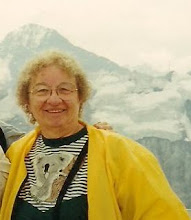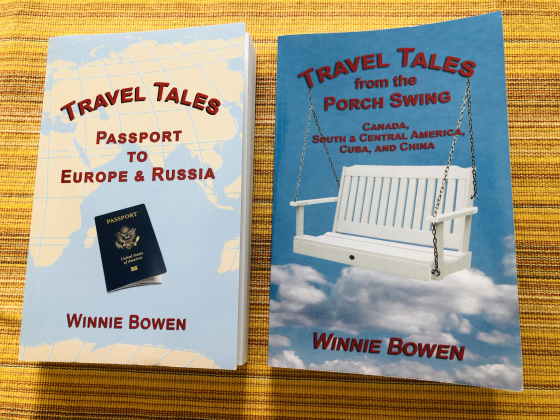“I listen to TV and I listen to the dumb, dumb things people say,” said Winnie Bowen, who at 92 is one of the oldest members of Senior University. “It just kinda blows my mind how incurious some people are. They just don’t have any curiosity about anything. I’m just the opposite — I have an insatiable appetite for learning and for curiosity.”
Ms. Bowen was born in 1932 and despite being a young girl during World War II, her father encouraged her and her sister to engage in mature dialogue about what was happening in the world. She attributes her insatiable curiosity to the intellectual dinner discussions she had growing up.
Ms. Bowen originally moved to Georgetown, in part, because she hoped to audit classes at Southwestern. After realizing that the university didn’t allow auditing, she found Senior University. Senior University is a non-profit membership organization that offers educational courses for people 50 years old and over.
Senior University celebrates its 20th anniversary this September. Ms. Bowen joined the institution in 1995, making her one of the organization’s most mature members. She said she thinks it is impressive how Senior University’s popularity has continued to rise in recent years.
When Senior University’s enrollment began to rapidly increase, she found herself organizing a lecture series on travel — a subject she loves. She has published two travel books, one about her travels through Europe and Russia and another about her trips to Canada, South and Central America, Cuba, and China. She also writes about her adventures on her blog, “Travel Tales.”
“There are a lot of people who take a trip, they’ll go to London one time and that’s the biggest thing in their whole life. I don’t want to tell those people that I’ve crossed the pond almost 30 times. I don’t want to brag about it, I don’t want to do that … I’m obviously happy to talk to anyone [about traveling] but a lot of people aren’t interested and in that case, I don’t want to waste my breath.”
Ms. Bowen organized a six-part lecture series on travel for Senior University students for 13 years. She taught one lecture herself and others were taught by guest speakers. In the lecture that she taught, she told a story about how she and her friend Selma Anderson accidently ate “opium” ice cream in Vienna. It turned out that it was poppy seed ice cream and that things had been lost in translation.
Ms. Bowen started traveling in 1992, after retiring from her nursing career. “At that point, my kids were grown and on their own. I wasn’t responsible for anyone but me. I didn’t have children to help get through college or anything like that. So I did things I wouldn’t have done when they were young. And things that I probably wouldn’t do again at this point in my life.”
“On my very first trip across the ocean, I had no idea what to expect. And I thought at that time it would be the only trip. I mean I really and truly did — I had no idea that I would go across so many more times.”
She first toured Europe through a group tour she found on AARP; the group visited well-known places in Europe including London, Paris, and Amsterdam.
“That trip wet my appetite to continue. I saw so much and learned so much,” Ms. Bowen said. When she heard that Road Scholar was offering a seven-day bike trip from Munich to Vienna, she was intrigued.
“I thought ‘Oh my Gosh, how much fun. Nothing could be more beautiful than that. And it was. My kids thought I had gone over the edge. My sister thought I was crazy. As did everybody else. I didn’t know a thing about biking. But I biked 45 miles per day for a whole week, going all the way from Munich to Vienna. I just had a fantastic time, a wonderful time. And the next year after that I did one in Bordeaux and after that one in Denmark … The best way to see a country, as far as I’m concerned, is by bike or by foot.”
Ms. Bowen and her daughter Shirley climbed the Swiss, Italian and French Alps. She and her son John climbed Machu Picchu — which was the hardest thing, physically, that Ms. Bowen has ever done.
“I’m claustrophobic but I went down in a tin mine [in Cornwall, England]. Where we followed a path that was super narrow. I was holding onto the waist of the person in front of me, and the man behind me was holding on to my waist,” Ms. Bowen paused to laugh. “And we’re going through this tin mine and I’m talking to myself all the way. When we got to the top, one of the other women asked me, ‘Winnie did you talk to yourself the whole time?’ And I said, ‘Oh yes, I did.’’ But I got through it.
“Then I went down to the salt mine in Poland. It was fantastic. It was big, there were wide steps, it was all open. Oh it was gorgeous, absolutely gorgeous. Everything is carved out of salt and there’s chandeliers and buffets. The whole thing is all salt and it’s amazing. They mined salt out of there for years and years — decades I think. But there you go, I guess you never really know what you’re in for.”
“I had no idea what it would be like to pedal a bicycle 45 miles a day, for days on end. But it didn’t stop me,” Ms. Bowen said. “The only thing I wouldn’t ever do is bungee jump. To me, that’s suicide. That’s how you break your neck. And no I don’t care to be a paraplegic, thank you. So no, I didn't ever do that.”
Ms. Bowen volunteered to help with animal research projects. She helped research bottlenose dolphins in Belize, spinner dolphins and Hawaiian monk seals on Midway Island, manatees in Florida, and took part in a volunteer project at the Corpus Christi Aquarium. She went to the Subarctic to study polar bears and she went on a safari in Kenya.
Ms. Bowen doesn’t understand people who only want to see the things that everyone knows about. She travels to do new things, talk to different people and experience new cultures. “Some people just travel to collect countries, they travel so they can say they’ve been there. And then there are people who go so they can see the ‘important’ things — London Bridge, Eiffel Tower, the girls in France doing the can-can.
“People go to Honolulu all the time. I tell them to be sure and get to the Iolani Palace because it’s the only palace in the United States. It’s right downtown in Honolulu on the main drag. You can’t miss it. They’ve fully restored it and they have self-guided tours. One person out of 10, maybe, will make it. They’ll say, ‘We just didn’t get there.’ So I ask them, “Well what did you do?” And they say, ‘Oh well, we sat by the pool.’ I’m thinking, heck, I can sit by the pool right here in Texas! Do something you can’t do at home.”
After the coronavirus pandemic became less of a problem, Ms. Bowen and her daughter went on a Road Scholar trip to Belize to snorkel. Although they enjoyed the snorkeling, they didn’t feel inclined to climb the monuments or keep up with younger members of the group.
“This last trip may have been my swan song, I don’t know. It was extremely hot and humid in Belize. I don’t do well in high heat or high humidity. So I got through it, I struggled through it. I say I struggled, everybody else looks at me and says. ‘Hell, you’re doing pretty good for your age!’
“I’m just very grateful that I found traveling, that I have the health to do the things that I did, and that I could financially do it. I am grateful every day that I had those three things … My daughter is talking about going on a river cruise next year, so we’ll just have to see what happens with that."



